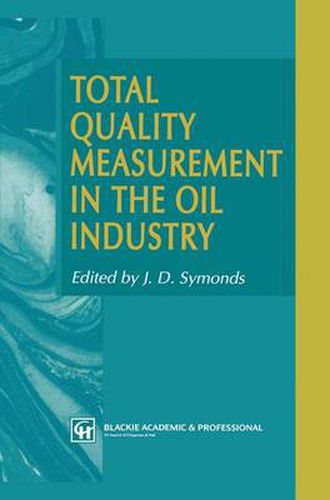Readings Newsletter
Become a Readings Member to make your shopping experience even easier.
Sign in or sign up for free!
You’re not far away from qualifying for FREE standard shipping within Australia
You’ve qualified for FREE standard shipping within Australia
The cart is loading…






This title is printed to order. This book may have been self-published. If so, we cannot guarantee the quality of the content. In the main most books will have gone through the editing process however some may not. We therefore suggest that you be aware of this before ordering this book. If in doubt check either the author or publisher’s details as we are unable to accept any returns unless they are faulty. Please contact us if you have any questions.
Oxford and Websters dictionaries give a common definition of quality as degree of excellence . This is remarkably brief and no doubt unsatisfactory to many people, yet if degree means a stage in ascending or descending series, in intensity or in amount, then measurement is by definition explicitly required if terms such as quality level , good quality , high quality etc. are to have any real meaning. Using measurement is inherent in the methods of all the major writers on the achievement of business improvement through quality. However, it is not easy for quality professionals or line managers to find examples of what they should measure, and how to do it in their own particular functions and in their own particular industries; case studies always seem to refer to others. This book shows the value of using measures, with practical advice on, and examples of, implementing them specifically in the oil and petrochemicals industries, and is based on the relevant experiences and investigations of the authors. Strongly oil industry focused, it is, however, expected that the lessons will be applicable to many other industries. Like a cook-book , there are a number of recipes to be tried and tested. Those most palatable to a particular organisation are likely to be the ones repeated most often. It is particularly relevant to those organizations who are trying to establish management by fact rather than opinion. Written primarily for managers at all levels in the oil and petrochemical industry, both technical and non-technical, this book is also a source of information for all those in academic and research institutions studying this industry in particular, and quality issues in general. This book should be of interest to chemists and chemical engineers acting as technical, quality and process managers in the oil and lubricant industry and its customers (eg automotive and heavy industrial).
$9.00 standard shipping within Australia
FREE standard shipping within Australia for orders over $100.00
Express & International shipping calculated at checkout
This title is printed to order. This book may have been self-published. If so, we cannot guarantee the quality of the content. In the main most books will have gone through the editing process however some may not. We therefore suggest that you be aware of this before ordering this book. If in doubt check either the author or publisher’s details as we are unable to accept any returns unless they are faulty. Please contact us if you have any questions.
Oxford and Websters dictionaries give a common definition of quality as degree of excellence . This is remarkably brief and no doubt unsatisfactory to many people, yet if degree means a stage in ascending or descending series, in intensity or in amount, then measurement is by definition explicitly required if terms such as quality level , good quality , high quality etc. are to have any real meaning. Using measurement is inherent in the methods of all the major writers on the achievement of business improvement through quality. However, it is not easy for quality professionals or line managers to find examples of what they should measure, and how to do it in their own particular functions and in their own particular industries; case studies always seem to refer to others. This book shows the value of using measures, with practical advice on, and examples of, implementing them specifically in the oil and petrochemicals industries, and is based on the relevant experiences and investigations of the authors. Strongly oil industry focused, it is, however, expected that the lessons will be applicable to many other industries. Like a cook-book , there are a number of recipes to be tried and tested. Those most palatable to a particular organisation are likely to be the ones repeated most often. It is particularly relevant to those organizations who are trying to establish management by fact rather than opinion. Written primarily for managers at all levels in the oil and petrochemical industry, both technical and non-technical, this book is also a source of information for all those in academic and research institutions studying this industry in particular, and quality issues in general. This book should be of interest to chemists and chemical engineers acting as technical, quality and process managers in the oil and lubricant industry and its customers (eg automotive and heavy industrial).